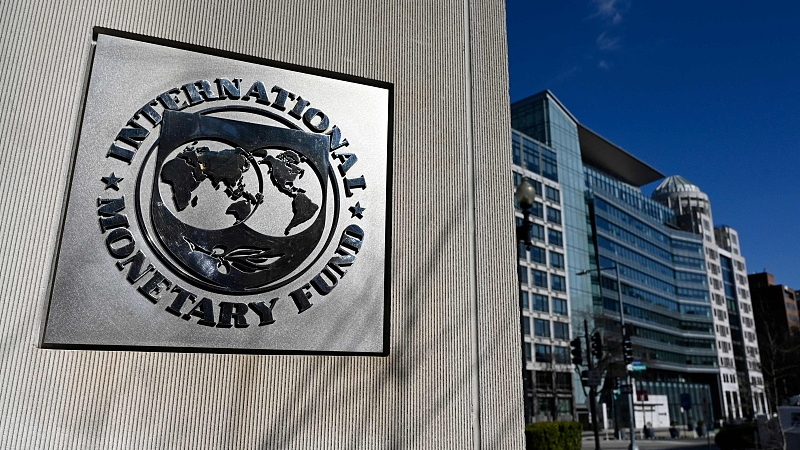
The seal for the International Monetary Fund (IMF) in Washington, DC., April 29, 2022. /CFP
The seal for the International Monetary Fund (IMF) in Washington, DC., April 29, 2022. /CFP
The International Monetary Fund (IMF) on Friday approved a new emergency lending facility to aid countries facing "acute food insecurity" amid the global rise in prices.
The Food Shock Window will provide additional access to emergency financing "to help people in vulnerable countries deal with one of the worst crises of all: hunger," IMF chief Kristalina Georgieva said in a statement.
Climate shocks, conflict and the COVID-19 pandemic already had disrupted food production and distribution, driving up the cost of feeding people, she said.
"As a result, a food crisis is spreading around the globe with a record 345 million people whose lives and livelihoods are in immediate danger from acute food insecurity," Georgieva said.
The new facility will operate for one year, offering "an additional line of defense after grants and concessional financing," she said.
It is part of two emergency aid programs the IMF created to help countries deal with the impacts of the pandemic – the Rapid Credit Facility, which provide zero-interest loans for up to 10 years for the poorest countries; and the Rapid Financing Instrument, which is for wealthier economies and must be repaid in five years at most.
In a blog post on Friday discussing the "staggering humanitarian impact and large financial costs" of the food crisis, Georgieva said the new window can be used where "grants and concessional financing from partners are not enough, or a Fund-supported program is not possible."
The blog post said that 48 countries are most affected by the food crisis and many of them are highly dependent on imports from Ukraine and Russia–mostly low-income countries.
About half of the 48 countries are especially vulnerable due to severe economic challenges, weak institutions, and fragility.
A new IMF paper estimates that the impact of higher import costs for food and fertilizer for highly exposed to food insecurity will add $9 billion to the 48 countries' balance of payments pressures—in 2022 and 2023. This will erode countries’ international reserves, as well as their ability to pay for food and fertilizer imports.
(Source: AFP with edits)